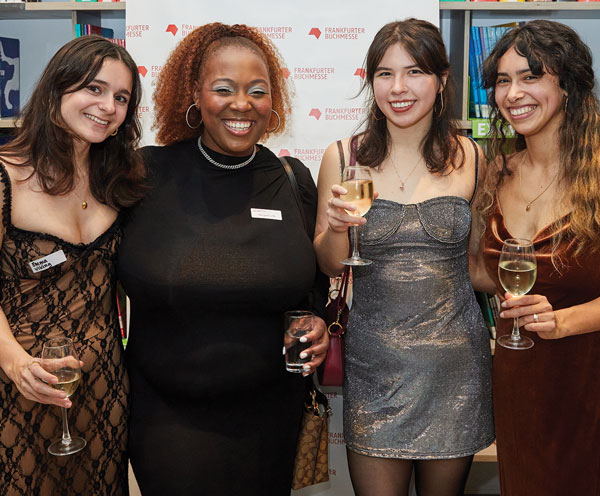For young people in publishing, many conversations with industry veterans invoke mentions of the “good old days,” a bygone era of long lunches and lavish parties. Today, newcomers navigate a very different, far less social professional environment—shaped in many ways by the pandemic—in which hybrid work models and tight budgets are the norm.
“For an industry so heavily reliant on relationships and networking, people who are coming into the industry are at a severe disadvantage,” said Noah Perkins, founder and chair of the Young Publishers Association (YPA). Perkins speaks from experience. He got his first full-time publishing job in 2021 at the book packager Neuwirth & Associates, and while he loved the work, he found that because the job was fully remote—the first such role at the firm—he felt isolated from the larger publishing community. The position, he added, forced both Perkins and his employer to “rethink what it means to train someone—what it means to mentor someone.”
In February 2024, Perkins organized a networking event for young publishing professionals at Union Hall, a bar in Brooklyn’s Park Slope neighborhood. That one-time event soon spawned the YPA, a volunteer-run nonprofit aimed at nurturing the industry’s next generation. Since then, the YPA has held nearly monthly mixers at bars across New York City—featuring such seasonal activities as a Halloween costume contest and “Booksgiving” book swap—as well as in-person and virtual networking events and educational panels.
“We’ve created a little bit of a local watering hole again,” said YPA vice chair Chris Gouchoe, who, along with Perkins, sits on the YPA’s 18-person organizing committee. Attendees, he noted, come from all corners of the industry, including the Big Five publishers, indie presses, literary agencies, and even booksellers.
“Based on the response that we’ve had over the last year, it feels like we are really filling a need,” Perkins said, noting that the Association of American Publishers’ Young to Publishing group—which offered educational, social, and service opportunities for entry-level and junior industry employees—sunsetted at the end of 2020. For inspiration, he looked to the U.K.’s Society for Young Publishers, which has existed for just over 75 years and has its own convention, magazine, and numerous chapters.
Earlier this year, the YPA held its first ticketed event, a night of agent-editor speed dating, and in December it hosted its biggest undertaking yet: a “ball” at the Goethe-Institute in Manhattan, which drew 120 attendees and was sponsored by the Frankfurt Book Fair. The organization has received donations and sponsorships from organizations as diverse as the Children’s Book Council, PubWest, and Amelia Lee Sheldon Literary.
Last spring, Perkins and two other YPA organizers were among the featured speakers at the U.S. Book Show’s Young Publishing Forum, copresented by PW. Going forward, Perkins is keen to seek new partnerships and expand the YPA’s offerings, including through more professional growth opportunities, a mentorship program, and events geared not just toward people breaking into the industry but also those further in their careers.
Perkins isn’t convinced that publishing’s good old days were all that good: long hours and low pay have long plagued the industry, he said, and he is glad employees pushed for better work-life balance during the pandemic. “In some aspects, it’s much healthier now than it was before. But there’s still some systemic issues that need to be addressed.”
Publishing’s high turnover was top of mind. “You’re losing a lot of talent to other, higher paying industries that are more respectful of workers’ time and energy,” Perkins said. “You have a bunch of young, eager people who are willing to come into the industry and put all this time and effort in because it’s something they love, and then they get burnt out and end up leaving. That’s a sustainable profit model, but I think you lose out on the human aspect.” Not to mention, he added, a trove of “institutional knowledge” that leaves with employees who “can no longer financially justify” working in publishing.
Perkins is focused on what he can control: creating opportunities for connection, one mixer at a time. “We can’t do anything if we feel isolated from one another,” he said. “We’ll all be happier, healthier individuals and a happier, healthier publishing community if we all feel like we’re part of something, together.”
A version of this article appeared in the 04/28/2025 issue of Publishers Weekly under the headline: Youth Must Be Served
